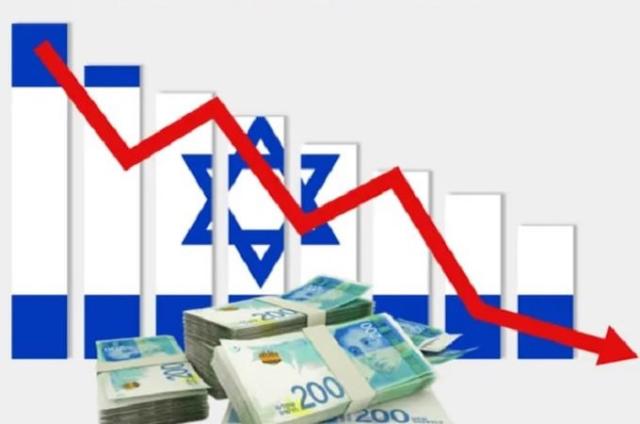In the closing quarter of 2023, Israel's economic landscape experienced a significant downturn, largely attributed to the ongoing conflict with Hamas, which has exerted profound pressure on the nation's economic stability. The Central Bureau of Statistics revealed a stark 19.4% annualized decline in Gross Domestic Product (GDP) for the October-to-December period, a sharp reversal from the growth observed in the preceding quarter.
This economic setback aligns with a series of challenging developments for Israel, which has been engaged in a military operation in Gaza aimed at neutralizing Hamas following its attack on October 7. The Bank of Israel has projected the cost of this conflict to reach approximately 255 billion shekels ($70.3 billion) by the conclusion of 2025, representing a significant 13% of the nation's GDP.
𝗥𝗲𝘀𝗶𝗹𝗶𝗲𝗻𝗰𝗲 𝘄𝗶𝗹𝗹 𝗹𝗲𝗮𝗱 𝘁𝗼 𝗿𝗲𝗰𝗼𝘃𝗲𝗿𝘆
— Israel in Cyprus (@IsraelinCyprus) February 19, 2024
"Despite the current war, the historical resilience of the Israeli #economy is expected to recover in the year ahead".
Interview by Ambassador @OrenAnolik in Gold magazine (Issue 155)https://t.co/Xk7R4SFcNU pic.twitter.com/oGjoIFjyIv
The onset of the war prompted a reevaluation of economic forecasts, with the central bank adjusting its GDP growth projection for the year to 2%, a decrease from the 3% forecast made before the conflict began. This adjustment reflects the broader economic ramifications of the conflict, evidenced by the preliminary data indicating a 2% expansion in 2023, a deceleration from the robust 6.5% growth in 2022. Key economic indicators, such as private consumption and the import and export of goods and services, have shown marked declines, signaling a contraction in economic activity across various sectors.
The anticipation of a downturn in private consumption, demand, and investment, particularly in construction and other critical sectors, has led to a downward revision of growth expectations by the Finance Ministry, the Bank of Israel, and international credit rating agencies. The OECD, for instance, has adjusted Israel's GDP forecast for 2023 to 2.3%, down from 2.9% prior to the conflict, while the Bank of Israel anticipates a modest growth rate of 2% for both 2023 and 2024.
Live update: Israel’s war-battered economy sees double-digit contraction, sharpest since coronavirus crisis https://t.co/HgiU4TrkSp
— ToI ALERTS (@TOIAlerts) February 19, 2024
The war's economic impact was further underscored by Moody's decision to issue Israel's first-ever credit rating downgrade, pointing to heightened political risk and a deterioration in public finances as key factors. Despite this, Moody's acknowledged Israel's competent management of the war's immediate economic fallout, noting signs of a potential quick recovery. However, the threat of an escalation, potentially involving Hezbollah, casts a shadow over the economic outlook, with Moody's cautioning that an intensified conflict could inflict broader and more enduring damage on the economy.
This period marks a critical juncture for Israel, facing both immediate economic challenges and the looming threat of prolonged conflict. As the nation navigates these turbulent times, the resilience of its economy and the strategic decisions of its leaders will be pivotal in determining the path to recovery and sustained growth.


